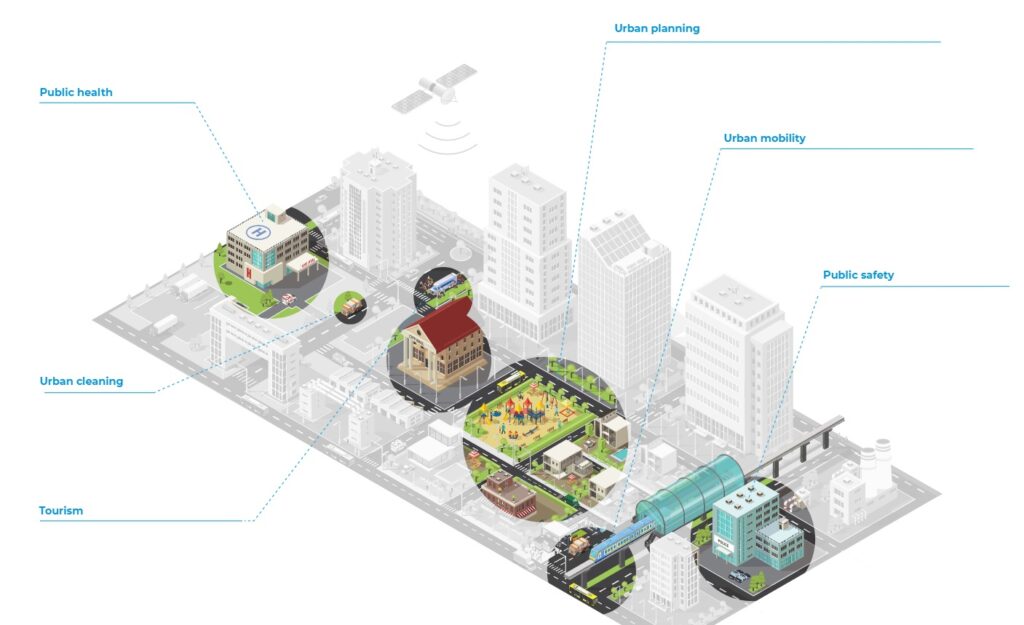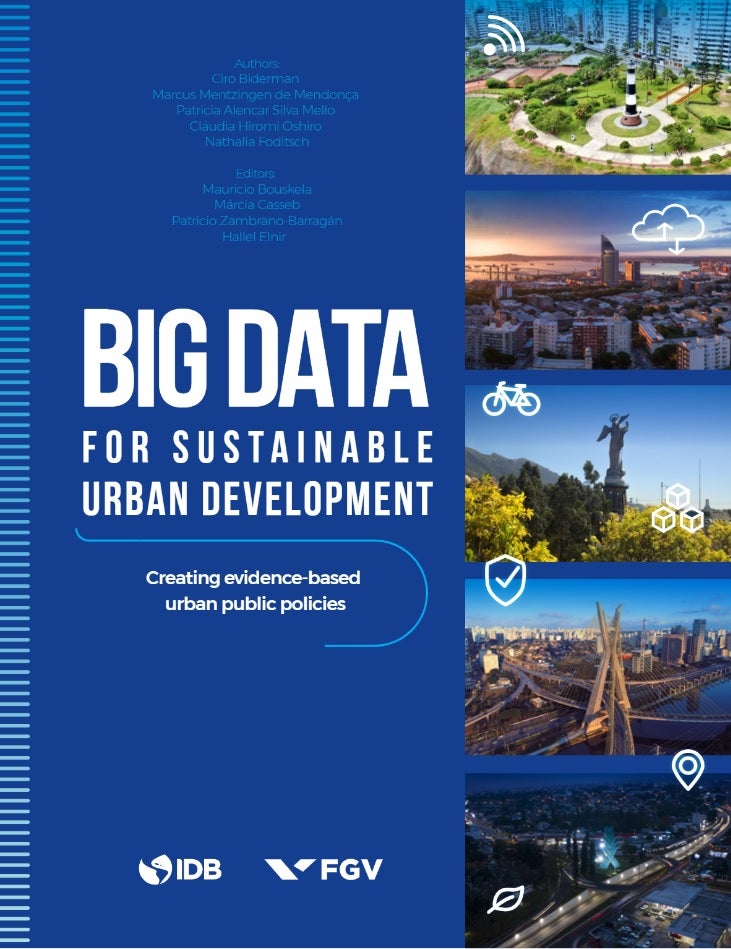Este artículo está también disponible en / This post is also available in: Spanish
Citizens, despite we may not be aware, generate enormous amounts of data every minute. Our cell phones and computers, traffic sensors, or video surveillance cameras are continuously producing and storing information. If municipal administrations would process, analyze, and use this data correctly, many of the common challenges in our cities, such as traffic jams, pollution levels, traffic accidents, could been solved.

The Inter-American Development Bank (IDB), in its commitment to the economic and social recovery of the region, has adopted a roadmap for the development of Latin America and the Caribbean (LAC): Vision 2025: Reinvest in the Americas. One of the main pillars of this roadmap is digital transformation. Indeed, the digitization of our cities is called to be an essential element for the development of public policies based on evidence. For this reason, in this blog post we address the importance of large-scale data processing, also called Big Data, to improve the lives of citizens, and facilitate sustainable and inclusive growth of the cities of LAC.
How to apply a Big Data strategy in my city?
Municipal leaders are often unaware of the vast amounts of data being generated in their cities. These data, both public and private (the latter, prior agreement with their owners), are available to the municipalities. However, do city technicians know how to use them to develop public policies based on evidence? Most do not, and we hope this blog entry would shed light on this great challenge for the region.
Something very important to keep in mind: collecting and having access to data is not enough. It is necessary to know how to organize, adapt and process them. Data, once worked on consistently and with a defined purpose, are very important both in supporting decisions and in the development of evidence-based public policies.
So, how can LAC cities learn to organize, adapt, and process Big Data, to optimize their public policies? The IDB’s Housing and Urban Development Division, together with the Fundação Getulio Vargas, has published a monograph. This publication is the result of the Big Data project for Sustainable Urban Development, whose objective is to explain to LAC cities how to make the best use of Big Data to solve the problems of their municipalities. The project was financed with resources from the IDB’s Regional Public Goods Initiative (RPB), which selects and supports regional cooperation projects between three or more Latin American and Caribbean countries on development issues through annual public calls.
Big Data for Sustainable Urban Development: the monograph for data-driven “smart” cities

The Big Data for Sustainable Urban Development monograph offers answers to LAC cities that want to learn how to optimize their Big Data strategies. It presents, in a simple and attractive way, the path that municipalities seeking a new management model must follow and recommends that they use massive data productively to develop more effective public policies for their citizens.
.
This publication presents a model that will allow readers to make more efficient decisions and develop and monitor evidence-based public policies using big data. It is divided into five chapters, dealing with the following topics:
International practical experience
The first chapter contextualizes the topic and the main concepts around the use of Big Data by the public administration. It shows how cities from different parts of the world use smart technologies to collect and process data to improve their operations and the offer of services to citizens.
The Big Data project for Sustainable Urban Development
The second and third chapters present the Big Data project for Sustainable Urban Development, developed by Fundação Getulio Vargas. It also includes the methodology and the big data diagnosis of the five cities participating in this program: Miraflores (Peru), Montevideo (Uruguay), Quito (Ecuador), São Paulo (Brazil) and Xalapa (Mexico). The analysis incorporates the status of the technological and legal conditions of these municipalities, as well as a detailed mapping of their services, data, and information already available in each of them.
Replicating best practices in other cities in the region
The fourth chapter deals with the practical results of the project. The explanation of how to build an online platform for the storage, dissemination and distribution of available open data stands out. It also exposes the way in which reference applications can be developed that can be replicated in other cities in the region.
Recommendations to become a data-driven smart city
The last chapter presents recommendations for actions to migrate from a traditional city model to that of a smart city, that is, data-driven.
In the format of checklists of items, the recommendations take into account factors such as:
- the preparation and approval of a data policy
- the formation of alliances for data analysis pilot projects
- the creation of a data analysis team by administrative act
- the celebration of public-private alliances for the collection and treatment of Big Data and the creation of the management team

Recommendations for the implementation of data-driven policies
This monograph is a practical and useful guide for LAC cities. Therefore, it presents a battery of recommendations for the formulation and implementation of innovation policies. Among them, the mapping and qualification of inputs, the diagnosis of problems, the validation of solutions in conjunction with public managers and the importance of monitoring and evaluation for the continuous improvement of prototype solutions stand out. The publication also addresses the challenge of cities to adapt during the COVID-19 pandemic, and the momentum that digitization took jointly throughout the world.
We trust that this guide will serve to advance the use of data-driven policies in our cities, and therefore, to improve the lives of citizens, facilitating sustainable and inclusive growth of LAC municipalities.
If you enjoyed this blog, sign up here to receive our monthly newsletter with all the blogs, news, and events from the IDB’s Housing and Urban Development Division


Leave a Reply